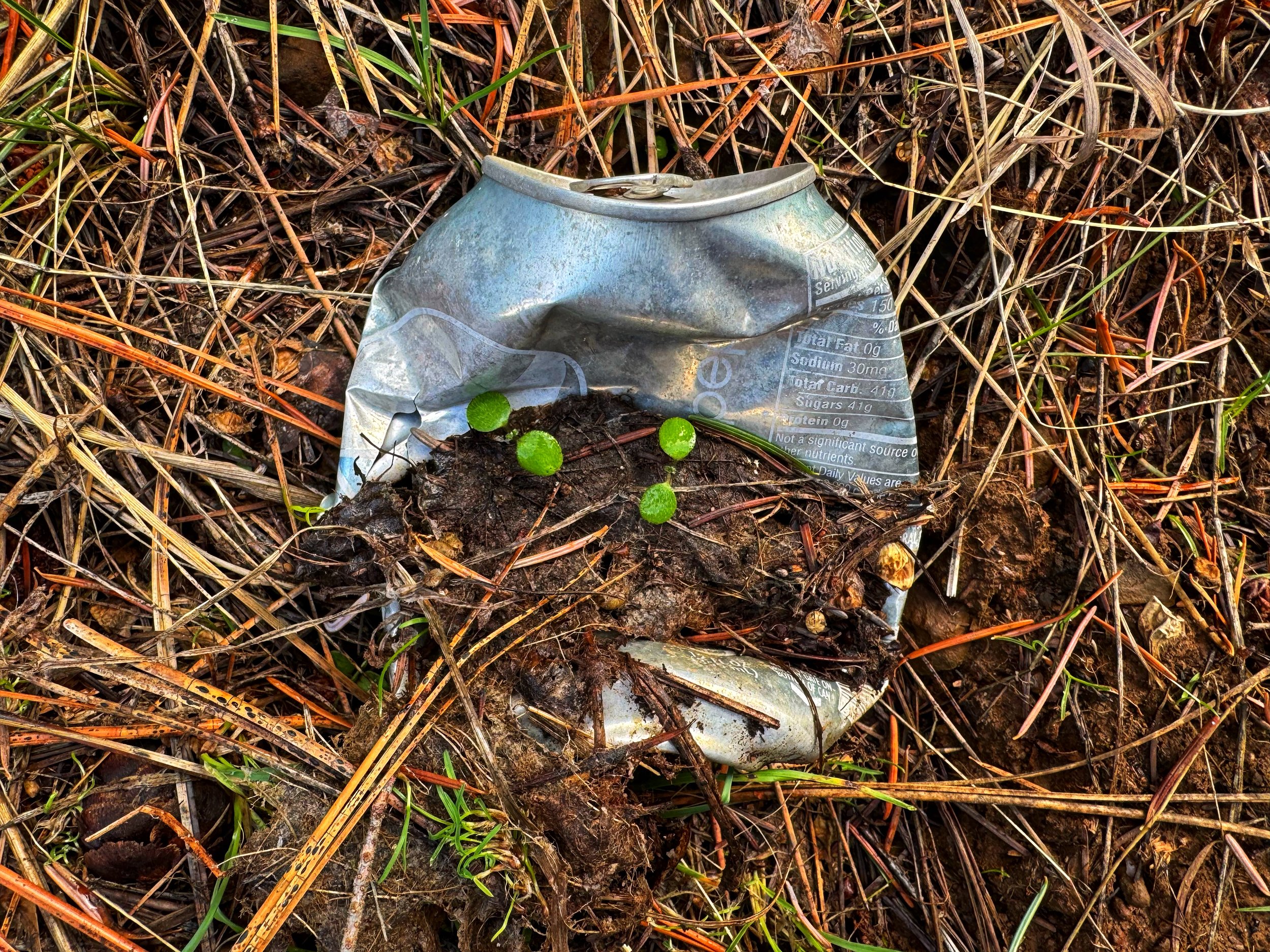FOREST LITTER:
the layer of dead plant material (leaves, twigs, bark, etc.) that accumulates on the forest floor
HUMAN LITTER:
trash, such as paper, cans, and bottles, left lying in an open or public place
Not all litter is created equal. There’s litter, and then there’s litter.
We spend a fair amount of time out on the trail wandering the woods, and the forest floor is covered with forest litter. Life-giving litter, those dead leaves, twigs, bark, and what have you play an essential role in the ecosystems’s health and wellbeing. Decomposing over time, the forest litter becomes the soil in which life will continue to grow and flourish.
And then there’s the other kind of litter. Life-sucking litter, that debris, trash, cans, and what have you that have been mindlessly, or intentionally, tossed out, create a mess for someone else to deal with. We keep a plastic bag in our packs solely for the purpose of carrying out any trash we find along our way. It’s pretty easy for me to make some quick assumptions about whoever threw whatever it was out their truck window or tossed over their shoulder. How they were raised, the kind of vehicle they drive and the bumperstickers they display, how they vote, how they dress, talk, or take care of their teeth for that matter. Litterbugs one and all, I imagine them as people who don’t care about the planet or the rest of us, human or otherwise, who share it with them. All of those assumptions run through my head as I pick up yet another beer can, wine cooler can, fast food wrapper, water bottle, or soda can, and take them home to recycle.
My assumptions, accurate or not, are judgy, derogatory, and demeaning to say the least. Don’t they know any better? Apparently not, or they wouldn’t do it. Because when we know better, we do better.
On deeper reflection, however, not all litter is visible to the eye. It is experienced by those who stumble upon it. By those who have to pick up the pieces someone else should have dealt with and disposed of themselves. Seen in that light, it’s safe to say that we’ve all been guilty of littering. Of mindlessly, or intentionally, leaving our mess for someone else to clean up. Of tossing out whatever we’d rather not deal with. Litterbugs one and all, it happens to the best of us, the worst of us, and the somewhere-in-the-middle of us. Don’t we know any better? Apparently not, or we wouldn’t do it. Because when we know better, we do better.
Hiking out with more trash the other day, my judgy thoughts turned inward as I did a brief moral inventory. When and how have I left my inner debris behind for someone else to pick up? How have I littered the emotional forest I share with others? What have I carelessly left behind that will become someone else’s burden to bear? Expanding my view a bit more, what litter have we collectively mindlessly, or intentionally, tossed over our shoulder for those who come after us to deal with?
Whenever I take responsibility for myself, and do the work of understanding, healing, repairing, and growing, I am doing the life-giving work of the forest litter. When we collectively take responsibility for the world we share, we are doing the life-giving work of the forest litter. Our lives become the soil in which others can continue to grow and flourish.
On our last hike, we came upon another can. Judging from the oxidation, it had been there awhile. Looking closer, a tiny bit of soil filled up a small crimp in the aluminum, and a few green shoots had taken root. As Dr Ian Malcom famously said in Jurassic Park, “Life, uh, finds a way.” And it does, and it will, and I am grateful for that.
The generations behind us will inherit the world we leave them. The good, yes, but also the bad, and the seriously ugly. They will have to put down roots, grow, and flourish as best they can with what they have to work with. In other words, they will have to, uh, find a way, in whatever manner of world we leave behind.

